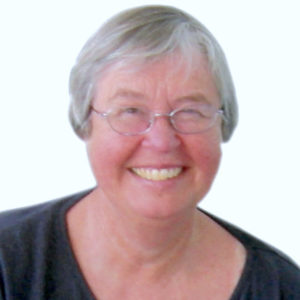Phyllis Ellis is a great believer in collaboration. She works now as a filmmaker, but in her past collaborated in a different way – as an athlete, playing field hockey at a level that propelled her to the 1984 Olympics.
Those two worlds, sport and arts, have been a part of her life since growing up in Lorne Park, west of Toronto. At 6, she was the lead in her church school play, but when asked what she wanted to do when she grew up, her answer was: “be an Olympian.” She had no idea which sport, because she played tennis, baseball, volleyball and was a runner-sprinter. In the end “field hockey found me,” she says.
Phyllis credits two teachers – Norma Walters from Hillcrest P.S. and Joanna Wilton from Lorne Park – with nurturing her early interest in sports as well as dramatic arts.
When facing the choice of going to London, Ont. for a track championship or heading to Germany as a member of the field hockey team, not surprisingly, Germany won out, a trip which then led, via a Phys Ed degree from the University of Toronto, to her Olympic year in 1984.
Her next years involved moves with her husband to Hartford, Connecticut where she worked in theatre and then on to Minneapolis where she and a friend started and ran a women’s theatre company. Her children, Max Gavin, now 28 and a hockey coach at Adrian College in Michigan, and Taylor Gavin, now 23 and a recent Queen’s University grad were born during this time.
When the family moved to Toronto, an Olympian friend, Jill Woolley, suggested her own neighbourhood of Leaside as a great place to put down stakes. Twenty-two years later, Phyllis still lives in Leaside – most recently, on Sharron Drive.
 “Leaside is a safe place to raise kids,” she says, and when she became a single mom, the parents of her children’s friends were particularly supportive. She knows most merchants on Bayview by name. “I could live in Leaside and not go anywhere else,” she laughs.
“Leaside is a safe place to raise kids,” she says, and when she became a single mom, the parents of her children’s friends were particularly supportive. She knows most merchants on Bayview by name. “I could live in Leaside and not go anywhere else,” she laughs.
With her first foray into producing – the documentary “Bearwalker,” shot in 1998-1989 and premiered at Sundance – she was very aware of how little she knew. An experienced soundman took her aside, and said: “Never say, ‘I don’t know’. Instead say, ‘I’ll get back to you about that,’ and write it down.” And “put on some sunglasses, so they won’t see the fear in your eyes.” That was her trial by fire in the film industry.
These past 10 years have been particularly fruitful for Phyllis. She has had seven nominations for Geminis or Canadian Screen Awards, and won four. Two of these were for her work as an actor in “The Wilkinsons” and as part of an ensemble cast in “Three Chords from the Truth.” She is particularly pleased to have won the coveted Donald Brittain Award for Best Social Political Film for the 2013 film “About Her,” since this is recognition by her peers.
Around that time, when a professional colleague asked, “Do you want to go to Singapore,” she at first demurred. But in the end she did go, and the opportunities for creative work have been flowing since. Today when she is mentoring young people, she tries to convey the importance of taking advantage of opportunities, and often uses that same phrase: “Do you want to go to Singapore?”
She is just finishing two documentaries – “Beauty,” an exploration of beauty and personal care products, and “The Country,” about reviving a nation on the edge of extinction – the Mi’kmaq on the west coast of Newfoundland.
Another project in the works she describes as “a David and Goliath story, where David is a trans woman with a slingshot.”





